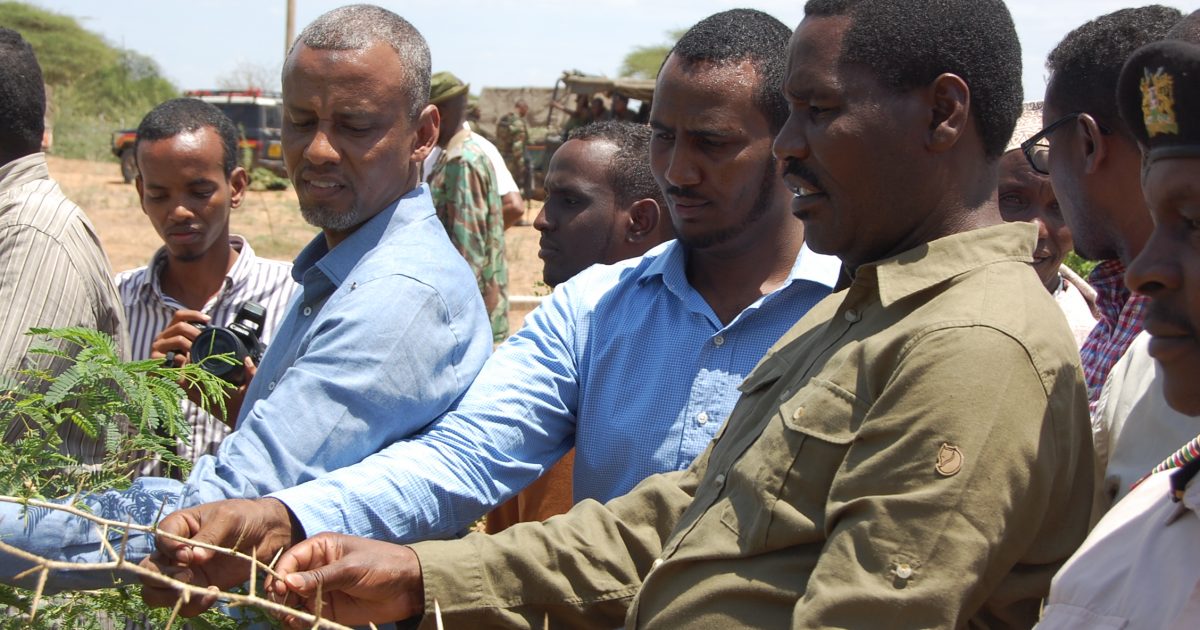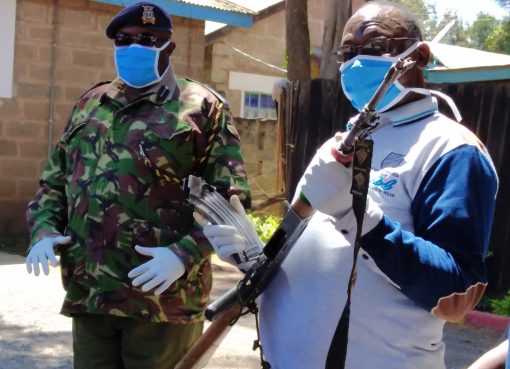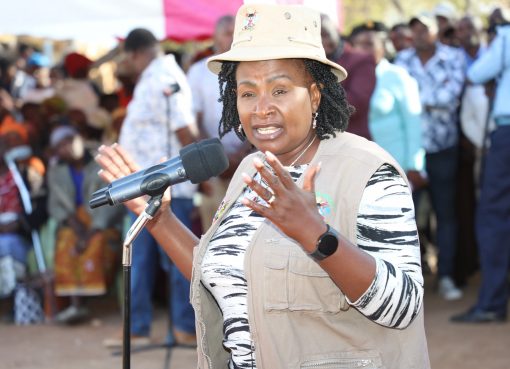The Government has set aside Sh. 2 billion for e-voucher system to enable farmers buy subsidised fertilizer.
The Agriculture Cabinet Secretary (CS), Peter Munya confirmed that following the approval by Cabinet last week on e-voucher access of fertiliser, farmers will now be able to access subsidised fertiliser during the upcoming long rains.
Munya said that maize, coffee, rice and potato farmers will be able to access fertiliser in the nearest agro vet shops.
Farmers have been waiting for the cabinet’s approval to access the e-vouchers for subsidised fertiliser in order for them to buy directly from importers and suppliers.
“The E-vouchers system was approved on Thursday last week by the Cabinet so that farmers will be able to buy inputs including seeds, fertiliser and pesticides from the agro vets. The government has set aside Sh.2 billion for the e-voucher system,” he said
The new system, once rolled out will help farmers since they have been waiting for the supply from the National Cereals and Product Board (NCPB) which sometimes takes long.
Speaking on the sidelines after officially opening the National Agriculture Summit at the Safari Park Hotel, the CS said registered farmers will be given a voucher that they can access subsidised fertiliser from agro vets who will later claim money from the government.
“We will not be storing fertiliser at the National Cereals and Produce Board depots like we did before. The subsidy will expand to other staples like rice, potatoes and also coffee,” he said .
The plan, the CS explained is to keep subsidy programme running for a period of three years and moving away from the subsidy programme and price fixing.
“We will allow the private sector to run the business to ensure stability of fertiliser prices for farmers to afford,” Munya added
The CS said those who will benefit from the e-voucher system will be picked from a database putting in mind the location and acreage of the farmer.
The system will benefit farmers from 11 Counties, including maize growing Counties of Trans Nzoia, Uasin Gishu, Bungoma and Kakamega. Rice growing Counties of Kirinyaga and Kisumu, coffee growing areas of Nyeri, Embu and Bomet and potato growing Counties of Nyandarua and Elgeyo Marakwet.
The Fertiliser Association of Kenya Chairman, Eustace Muriuki lauded the move by the government and assured farmers that there is enough fertiliser for the 2020 long rains season.
The current demand of fertiliser consumption in the country stands at between 600,000 to 650,000 metric tonnes of assorted fertiliser annually and government through the subsidy programme provides 20 percent of the total to the small scale farmers.
“A bag of DAP fertilizer at the port of Mombasa is currently selling at Sh. 2200 and once transported to various regions such as Kitale, price goes up by 32 percent to Sh. 2900,” Muriuki said.
At the same time, last year, farmers were able to buy a bag of DAP fertiliser from local agro dealers at between Sh.3000 and Sh.3500 a reduction of Sh.600 which is contrary to what farmers are saying. The prices this year are low and affordable to farmers if they prepare well,” Muriuki said.
Meanwhile, the Ministry of Agriculture has today reiterated Governments commitments to privatize five sugar mills to make them more efficient.
Speaking during the official launch of the National Agriculture Summit, Munya, said offloading of the sugar factories currently experiencing financial and management challenges will be carried out in the medium term.
The privatization of the facilities, he said, will be part of the agriculture transformation strategy.
“Our aim as the government is to make the factories more efficient and thus contribute to sugar production in the country. Our resolve is to reduce resources wastage and thus enhance farmers’ income base,” he said.
Every year the CS added, Government allocates substantial budgetary resources to finance management of the sugar mills, but nothing meaningful has so far been achieved.
“Sale of the factories supports Government commitment to reduce wastage of extended resources. Our intention is to bring on board strategic investors in order to offer new management styles and save the country and farmers substantial resources,” added Munya.
The sale of the sugar mills he explained will not be done under the rigorous process as subscribed under privatization commission strategy.
“Our intention will be legal but will not follow the privatization commission route as the same might take longer than expected,” he said.
However, Munya explained that the government will fast track a more farmer-investor oriented strategy which will offer quick results
The Government owned sugar mills, include Chemelil, Miwani, Muhoroni, Nzoia and SONY sugar companies.
Early this week, a taskforce appointed last year to investigate the challenges facing the sugar industry handed over its report to President Uhuru Kenyatta. Uhuru assured farmers that the Government is keen to ensure local sugarcane farmers earn decent incomes from their crop.
“As leaders, ours is to ensure farmers get maximum returns from their sweat,” the President said as he received the report whose key recommendations included the re-introduction of the sugar levy, privatization of public sugar mills to enhance their efficiency and the enactment of the Sugar Act.
The sugar levy will be charged on consumers so as to raise the revenue needed to assist farmers to develop their sugarcane crop.
Other proposed reforms include the gazettement of the sugar sector regulations, including import rules, amendment of the AFA Act and Crops Act in line with the 2010 Constitution, and a review of the taxation regime in the sector to enhance investor incentives.
Munya on the other hand observed that agriculture generates 26 per cent of Kenya’s Gross Domestic Product (GDP) and 65 percent of the total exports.
On the issue of the locust menace that has been affecting the country, the CS admitted that pest control is a major challenge in agriculture and needs to be addressed.
However, he noted that the locusts’ invasion has been largely contained and remnants are now found in counties of Turkana and central Kenya, Kirinyaga and Nyeri.
“The only challenge we are facing right now is the eggs and nymphs from the locusts that have already hatched their eggs. National Youth Service personnel have been spraying chemicals on them,” remarked Munya.
The launch of the Agricultural Sector Network (ASNET) Association and Sustainable Development Goals (SDG) has provided for in the E-voucher program, where the private sector will sell directly to the farmers without middle men being involved. A pilot project is running in Makueni for maize and coffee farmers.
The Kenya Private Sector Alliance (KEPSA) CEO, Carol Karuga, said that the Association will bring farming communities and donors together to direct a common agenda in the sector.
“We are working strategically and issues are dealt with systematically and better. Private sector plays a big role in agriculture and the government’s role is with policy and regulations
only,” remarked Karuga.
The two-day National Agricultural Summit is running under the theme “Building Partnerships for the Transformation, growth and Competiveness of the Agriculture sector in Kenya”
By KNA Team





